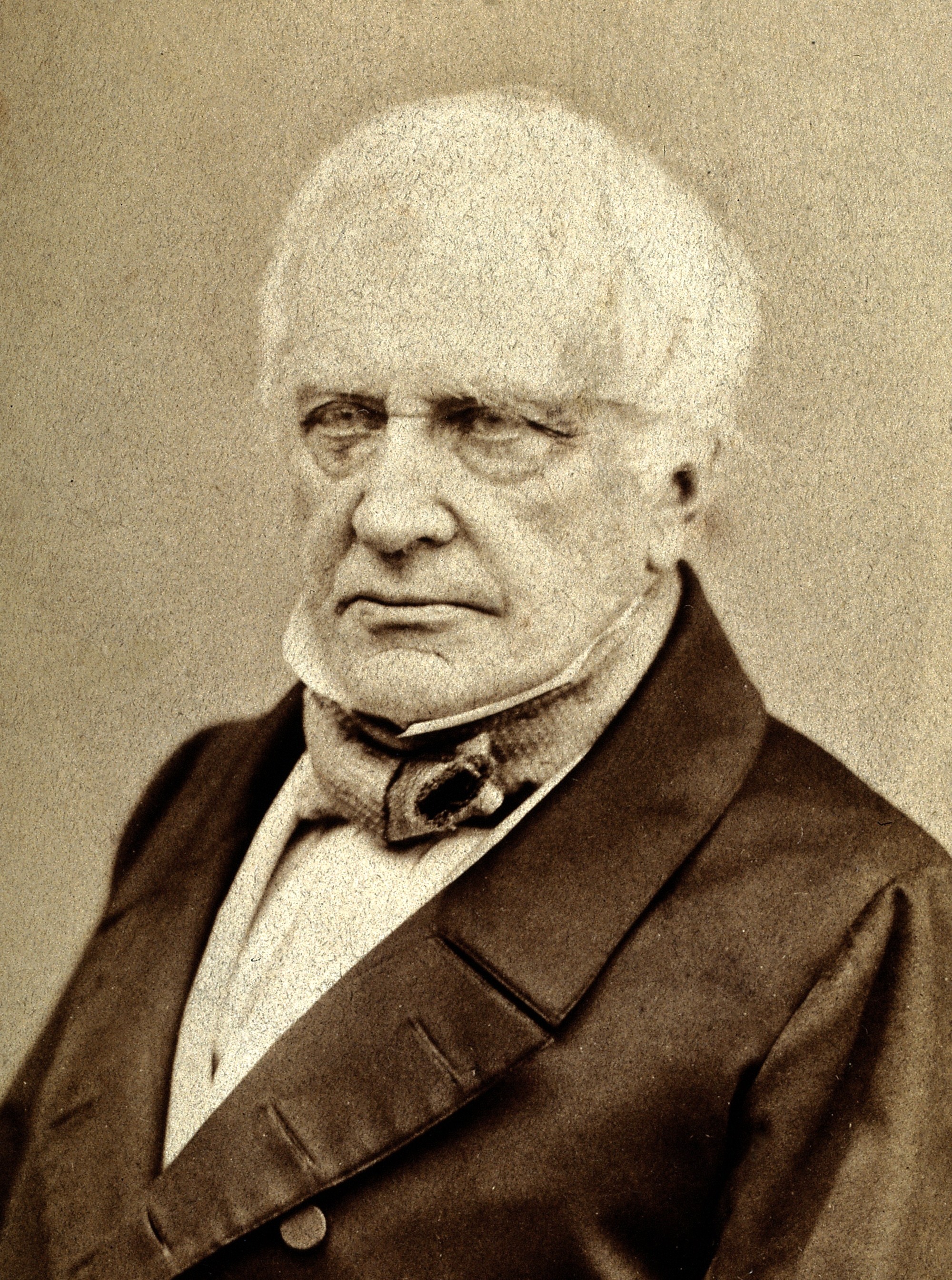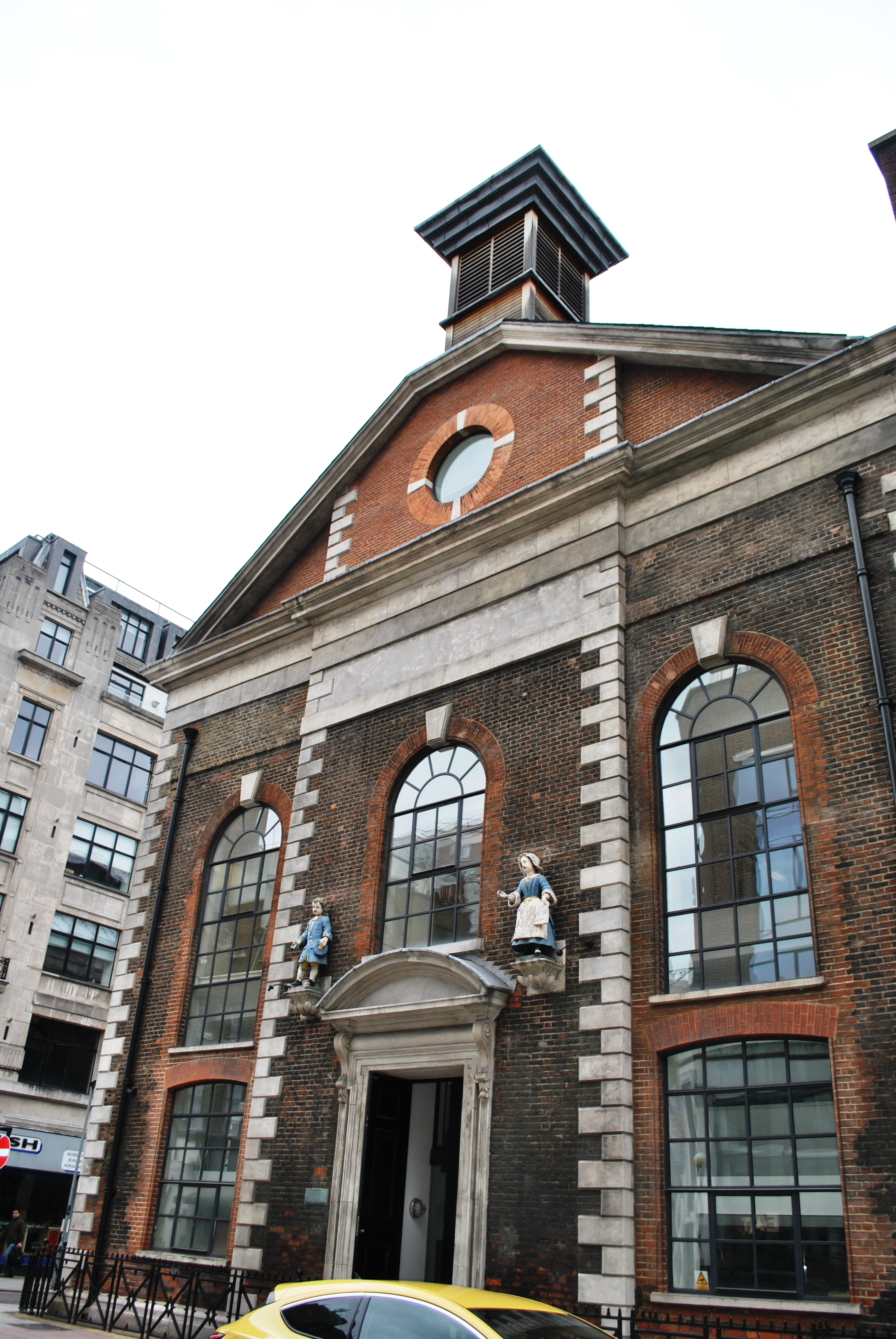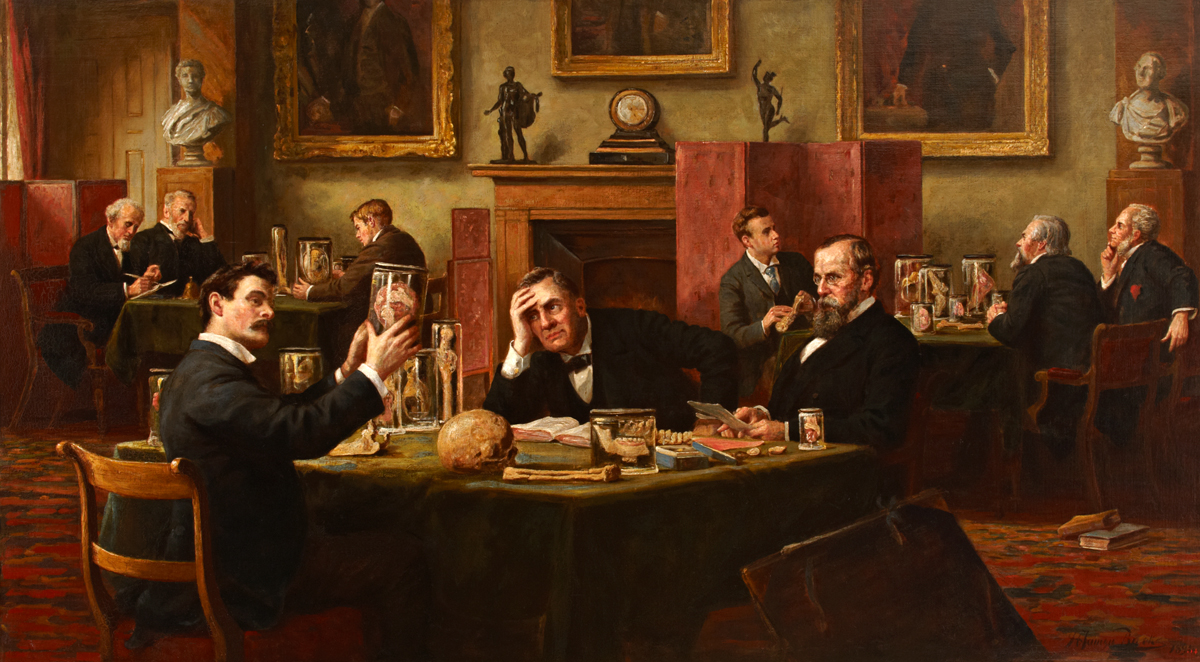|
Thomas Wormald
Thomas Wormald (January 1802 − 28 December 1873) was an English surgeon. Biography Early life Born at Pentonville, London, England in January 1802, was son of John Wormald, a partner in Messrs. Child's bank, and of Fanny, his wife. He was educated at Batley Grammar School in Yorkshire, and then by W. Heald, vicar of Birstal. He returned to London in 1818, and was then apprenticed to John Abernethy the surgeon to St. Bartholomew's Hospital. His master soon employed him to make preparations for his lectures, to teach the junior students, and to assist Edward Stanley (1793−1862), the demonstrator of anatomy in the medical school, in preserving specimens for the Pathological Museum. Wormald found time during his apprenticeship to visit the continental schools. Career Wormald was admitted a member of the Royal College of Surgeons of England in 1824, and Abernethy, who was at this time contemplating the resignation of his anatomy lectureship, made arrangements for Wormald to become ... [...More Info...] [...Related Items...] OR: [Wikipedia] [Google] [Baidu] |
Pentonville
Pentonville is an area on the northern fringe of Central London, in the London Borough of Islington. It is located north-northeast of Charing Cross on the Inner Ring Road. Pentonville developed in the northwestern edge of the ancient parish of Clerkenwell on the New Road. It is named after Henry Penton, the developer of the area. History The area is named after Henry Penton, who developed a number of streets in the 1770s in what was open countryside adjacent to the New Road. Pentonville was part of the ancient parish of Clerkenwell, and was incorporated into the Metropolitan Borough of Finsbury by the London Government Act 1899. It has been part of the London Borough of Islington since 1965. Pentonville is the birthplace of John Stuart Mill (1806) and Forbes Benignus Winslow (1810), the noted psychiatrist. In 1902 Vladimir Lenin and his wife lived just off Pentonville Road, and it was at this time that he first met his fellow exile Leon Trotsky. Geography Nearby plac ... [...More Info...] [...Related Items...] OR: [Wikipedia] [Google] [Baidu] |
Sir William Lawrence, 1st Baronet
Sir William Lawrence, 1st Baronet (16 July 1783 – 5 July 1867) was an English surgeon who became President of the Royal College of Surgeons of London and Serjeant Surgeon to the Queen. In his mid-thirties, he published two books of his lectures which contained pre-Darwinian ideas on man's nature and, effectively, on evolution. He was forced to withdraw the second (1819) book after fierce criticism; the Lord Chancellor ruled it blasphemous. Lawrence's transition to respectability occurred gradually, and his surgical career was highly successful. In 1822, Lawrence was elected a member of the American Philosophical Society in Philadelphia. Lawrence had a long and successful career as a surgeon. He reached the top of his profession, and just before his death the Queen rewarded him with a baronetcy (see Lawrence baronets) shortly before his death in 1867. Early life and education Lawrence was born in Cirencester, Gloucestershire, the son of William Lawrence, the town's chief s ... [...More Info...] [...Related Items...] OR: [Wikipedia] [Google] [Baidu] |
Burials At Highgate Cemetery
Burial, also known as interment or inhumation, is a method of final disposition whereby a dead body is placed into the ground, sometimes with objects. This is usually accomplished by excavating a pit or trench, placing the deceased and objects in it, and covering it over. A funeral is a ceremony that accompanies the final disposition. Humans have been burying their dead since shortly after the origin of the species. Burial is often seen as indicating respect for the dead. It has been used to prevent the odor of decay, to give family members closure and prevent them from witnessing the decomposition of their loved ones, and in many cultures it has been seen as a necessary step for the deceased to enter the afterlife or to give back to the cycle of life. Methods of burial may be heavily ritualized and can include natural burial (sometimes called "green burial"); embalming or mummification; and the use of containers for the dead, such as shrouds, coffins, grave liners, and b ... [...More Info...] [...Related Items...] OR: [Wikipedia] [Google] [Baidu] |
1873 Deaths
Events January–March * January 1 ** Japan adopts the Gregorian calendar. ** The California Penal Code goes into effect. * January 17 – American Indian Wars: Modoc War: First Battle of the Stronghold – Modoc Indians defeat the United States Army. * February 11 – The Spanish Cortes deposes King Amadeus I, and proclaims the First Spanish Republic. * February 12 ** Emilio Castelar, the former foreign minister, becomes prime minister of the new Spanish Republic. ** The Coinage Act of 1873 in the United States is signed into law by President Ulysses S. Grant; coming into effect on April 1, it ends bimetallism in the U.S., and places the country on the gold standard. * February 20 ** The University of California opens its first medical school in San Francisco. ** British naval officer John Moresby discovers the site of Port Moresby, and claims the land for Britain. * March 3 – Censorship: The United States Congress enacts the Comstock Law, making it ... [...More Info...] [...Related Items...] OR: [Wikipedia] [Google] [Baidu] |
1802 Births
Eighteen or 18 may refer to: * 18 (number), the natural number following 17 and preceding 19 * one of the years 18 BC, AD 18, 1918, 2018 Film, television and entertainment * ''18'' (film), a 1993 Taiwanese experimental film based on the short story ''God's Dice'' * ''Eighteen'' (film), a 2005 Canadian dramatic feature film * 18 (British Board of Film Classification), a film rating in the United Kingdom, also used in Ireland by the Irish Film Classification Office * 18 (''Dragon Ball''), a character in the ''Dragon Ball'' franchise * "Eighteen", a 2006 episode of the animated television series ''12 oz. Mouse'' Music Albums * ''18'' (Moby album), 2002 * ''18'' (Nana Kitade album), 2005 * '' 18...'', 2009 debut album by G.E.M. Songs * "18" (5 Seconds of Summer song), from their 2014 eponymous debut album * "18" (One Direction song), from their 2014 studio album ''Four'' * "18", by Anarbor from their 2013 studio album '' Burnout'' * "I'm Eighteen", by Alice Cooper commonl ... [...More Info...] [...Related Items...] OR: [Wikipedia] [Google] [Baidu] |
Luther Holden
Luther Holden (11 December 1816 – 1905) was an English surgeon. Biography Holden was born on 11 December 1816, in his grandfather's house at Birmingham, was second son of the Rev. Henry Augustus Holden (1785–1870), who married his cousin Mary Willetts, daughter of Hyla Holden of Wednesbury in Staffordshire. His father, on retiring from the army with the rank of lieutenant, matriculated at Worcester College, Oxford, in 1814 (B.A. 1817), and held the curacies of Wolstanton in Shropshire and of Warmington near Banbury, where he took pupils, but on being left a small fortune gave up his curacy and lived at Brighton and afterwards in London. His eldest son was Henry Holden (1814–1909). His fourth son, Philip Melanchthon Holden (1823–1904), was for forty-two years rector of Upminster in Essex. Luther, after successive education at home with his father's pupils, at a private school in Birmingham, and at Havre in 1827, where he made rapid progress in French, entered St. Bartholom ... [...More Info...] [...Related Items...] OR: [Wikipedia] [Google] [Baidu] |
Foundling Hospital
The Foundling Hospital in London, England, was founded in 1739 by the philanthropic sea captain Thomas Coram. It was a children's home established for the "education and maintenance of exposed and deserted young children." The word "hospital" was used in a more general sense than it is in the 21st century, simply indicating the institution's "hospitality" to those less fortunate. Nevertheless, one of the top priorities of the committee at the Foundling Hospital was children's health, as they combated smallpox, fevers, consumption, dysentery and even infections from everyday activities like teething that drove up mortality rates and risked epidemics. With their energies focused on maintaining a disinfected environment, providing simple clothing and fare, the committee paid less attention to and spent less on developing children's education. As a result, financial problems would hound the institution for years to come, despite the growing "fashionableness" of charities like the hos ... [...More Info...] [...Related Items...] OR: [Wikipedia] [Google] [Baidu] |
Aldersgate Street School Of Medicine
The Aldersgate Medical School was a medical school in east London, in existence from about 1825 to 1848. One of many private medical schools of the period, it had popular lecturers on its staff, and proved a serious rival to St. Bartholomew's Hospital as a teaching institution. Foundation The Aldersgate School was set up in 1825 by Frederick Tyrrell; the founding group included William Lawrence, William Coulson and others. At that point the shared medical school of Guy's Hospital and St. Thomas's Hospital was divided. Tyrrell lectured at the Aldersgate School, but later took a position at St. Thomas's, and was no longer involved with the Aldersgate school. Lawrence was also an early supporter of the school, lecturing on surgery in 1826–7; but he withdrew after taking a position at St. Bartholomew's Hospital. Lawrence was a reformer, and the background was his opposition to an 1824 regulation of the Royal College of Surgeons aiming to limit the number of medical schools that a sur ... [...More Info...] [...Related Items...] OR: [Wikipedia] [Google] [Baidu] |
Frederic Carpenter Skey
Frederic Carpenter Skey FRS (1 December 1798 – 15 August 1872) was an English surgeon. The Royal College of Surgeons of England Life He was the second of six children of George Skey, a Russian merchant in London, and was born at on 1 December 1798. He was educated chiefly at the private school of Michael Maurice, father of , whose friendship he retained until his death. After a short stay at Plymouth with his cousin, Dr. Joseph Skey, then inspector ...[...More Info...] [...Related Items...] OR: [Wikipedia] [Google] [Baidu] |
London
London is the capital and largest city of England and the United Kingdom, with a population of just under 9 million. It stands on the River Thames in south-east England at the head of a estuary down to the North Sea, and has been a major settlement for two millennia. The City of London, its ancient core and financial centre, was founded by the Romans as '' Londinium'' and retains its medieval boundaries.See also: Independent city § National capitals The City of Westminster, to the west of the City of London, has for centuries hosted the national government and parliament. Since the 19th century, the name "London" has also referred to the metropolis around this core, historically split between the counties of Middlesex, Essex, Surrey, Kent, and Hertfordshire, which largely comprises Greater London, governed by the Greater London Authority.The Greater London Authority consists of the Mayor of London and the London Assembly. The London Mayor is distinguished fr ... [...More Info...] [...Related Items...] OR: [Wikipedia] [Google] [Baidu] |
Royal College Of Surgeons Of England
The Royal College of Surgeons of England (RCS England) is an independent professional body and registered charity that promotes and advances standards of surgical care for patients, and regulates surgery and dentistry in England and Wales. The College is located at Lincoln's Inn Fields in London. It publishes multiple medical journals including the ''Annals of the Royal College of Surgeons of England'', the '' Faculty Dental Journal'', and the '' Bulletin of the Royal College of Surgeons of England''. History The origins of the college date to the fourteenth century with the foundation of the "Guild of Surgeons Within the City of London". Certain sources date this as occurring in 1368. There was ongoing dispute between the surgeons and barber surgeons until an agreement was signed between them in 1493, giving the fellowship of surgeons the power of incorporation. This union was formalised further in 1540 by Henry VIII between the Worshipful Company of Barbers (incorporated 14 ... [...More Info...] [...Related Items...] OR: [Wikipedia] [Google] [Baidu] |





